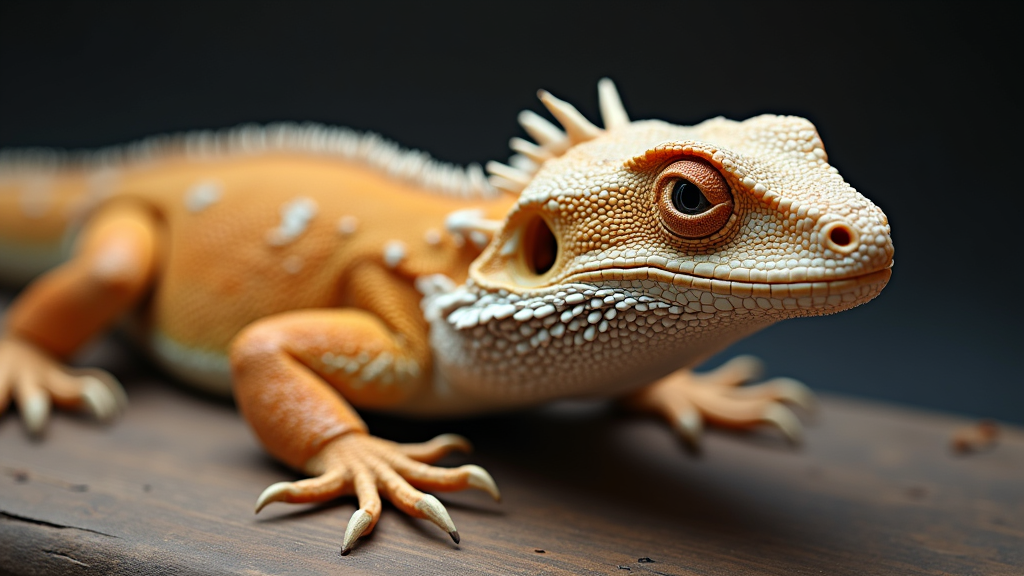Taking care of your bearded dragon involves many facets, but one of the most critical areas to focus on is their bone health. As a long-time owner and enthusiast of these fascinating reptiles, I’ve learned that ensuring strong, healthy bones in your bearded dragon is key to their overall well-being. In this comprehensive guide, we’ll explore the essentials of bone health for bearded dragons, including common issues, preventative measures, and practical tips for maintaining optimal health.
The Importance of Bone Health
Why Bone Health Matters
Bearded dragons rely heavily on their skeletal system for movement, hunting, and overall activity. Weak or brittle bones can lead to severe health issues, diminished quality of life, and even death. Strong bones are particularly important for growing dragons, as they set the foundation for long-term health.
Common Bone Health Issues
Bone health problems in bearded dragons often stem from poor husbandry practices, dietary deficiencies, or inadequate UVB exposure. The most common issues include:
- Metabolic Bone Disease (MBD)
- Fractures and Bone Weakness
- Calcium Deficiency
These problems can be debilitating but are often preventable with proper care.
Key Factors in Maintaining Bone Health
Nutrition: The Backbone of Bone Health
Nutrition is paramount in ensuring strong, healthy bones in your bearded dragon.
Calcium and Vitamin D3
Calcium and Vitamin D3 are essential for bone health. Bearded dragons need a diet rich in calcium to support their skeletal system. Some good sources include:
- Calcium-rich greens: Kale, collard greens, and dandelion greens.
- Calcium supplements: Powdered calcium (with or without Vitamin D3) should be lightly dusted on their food.
It’s important to balance calcium with phosphorus. High phosphorus levels can inhibit calcium absorption, leading to deficiencies.
UVB Lighting
UVB lighting is crucial for the synthesis of Vitamin D3, allowing your dragon to properly absorb calcium.
- Choose the Right Bulb: High-quality UVB bulbs, like those from ReptiSun, are ideal. Replace the bulb every 6-12 months as the UVB output diminishes over time. You can find UVB bulbs here.
- Correct Placement: Ensure the UVB light covers a significant portion of the enclosure and is positioned 10-12 inches from the dragon.
Hydration
Hydration aids in the overall health and functioning of their bodily systems, including bones. Provide fresh water daily and consider occasional misting.
Preventing and Recognising Bone Health Issues
Regular Vet Check-Ups
Routine vet visits are essential for early detection and prevention of bone health issues. A reptile-savvy vet can perform blood tests, X-rays, and other diagnostics to ensure your dragon’s bones are healthy.
Signs of Metabolic Bone Disease (MBD)
Be on the lookout for symptoms that might indicate MBD or other bone-related problems:
- Swollen limbs or jaw
- Tremors or muscle twitching
- Lethargy
- Difficulty walking or climbing
Spotting these signs early can make a big difference. If you notice any symptoms, consult your vet immediately.
Exercise and Enrichment
Providing opportunities for natural behaviours, such as climbing and basking, helps maintain bone strength. Ensure your enclosure has:
- Basking spots and climbing structures: Logs, branches, or commercial climbing devices.
- Adequate space for movement: A spacious habitat encourages regular exercise.
Practical Tips for Optimising Bone Health
Balanced Diet
Focus on a balanced diet that includes a mix of protein, vegetables, and occasional fruits. Avoid feeding high oxalate foods frequently, such as spinach and beet greens, as they can interfere with calcium absorption.
Proper Husbandry
Maintain optimal temperatures and humidity levels within the enclosure. The basking area should be around 95-105°F (35-40°C) with a cool end at 75-85°F (24-29°C). Humidity should be kept between 20-40%.
Continuous Learning
Stay updated on the latest care techniques and nutrition advice. Online forums, reptile care blogs (like this one!), and consultations with your vet can provide new insights and tips.
Conclusion
Ensuring bone health is a cornerstone of good bearded dragon care. By providing balanced nutrition, proper UVB lighting, regular vet visits, and enrichment activities, you can help your dragon lead a long, healthy life. As always, when in doubt, consult a reptile-specialised veterinarian to address any concerns or symptoms.
For more detailed information on bearded dragon care, check out our bearded dragon care page.
Remember, a well-cared-for bearded dragon is a happy and healthy companion. Stay engaged and proactive in their care, and you’ll both enjoy the journey!
Learn essential tips for maintaining bearded dragon bone health. From nutrition to UVB lighting, ensure your pet’s skeletal well-being with our expert guide.

